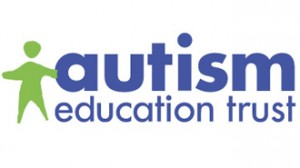Whenever the word ‘strategy’ is used in the context of government policy or action, it’s perhaps not surprising for some to assume the emphasis is always on direction from the centre. I’m pleased to say that -- for the 2010 cross-government Adult Autism Strategy at least - this has never been the case.
Indeed, Think Autism’s 2014 update was researched and developed in large part by people with autism, their families and carers - and I am proud to have been involved in this work at several points over the last few years. Its primary purpose has always been to improve the lives of people with autism by supporting local authorities, the NHS, other public services and their local partners with service implementation on the ground.
Attendant to that has been the other long term goal of raising awareness, understanding and opportunities for adults with autism. While this latest report does demonstrate progress made, it also acknowledges that more needs to happen, locally and nationally, to effect lasting, meaningful improvements in service provision and life chances.
But first, let’s take a look at some of the real progress made:
- More support with employment opportunities including improved guidance and training for employment advisors and Job Centre Plus staff
- Better awareness of autism within the criminal justice system including guidance, training and information for those working with people affected by autism;
- Greater use of information and data by local authorities and their partners and improved digital reporting of progress made, allowing services to be rated and compared to help with commissioning and planning services.
On this last point, the report includes many heartening examples of local health services making better and more proactive use of data and resources, facilitated in part by additional monies from the Autism Innovation Fund. For example, Dorset HealthCare wanted to improve its ability to identify and treat all service users with sensory processing disorders and autism. It did this through the development of integrated care pathways, a sensory therapy room and increased provision of sensory integration therapies. The funds allowed them to upgrade an existing space formerly used for physiotherapy and to provide additional therapy resources across Dorset to promote faster assessments and interventions.
 The cross-government commitment to the strategy has also been demonstrated with the success of the Department for Education funded Autism Education Trust’s (AET) training hubs programme 2013–15. Increased numbers of school staff have been trained and supported to help very young schoolchildren and teenage students. Warwick University’s evaluation of the programme included feedback from one college which reported: ‘The training has enabled staff to have a better awareness and understanding of the challenges students with autism may face, along with the practical strategies they are able to apply when supporting students.’
The cross-government commitment to the strategy has also been demonstrated with the success of the Department for Education funded Autism Education Trust’s (AET) training hubs programme 2013–15. Increased numbers of school staff have been trained and supported to help very young schoolchildren and teenage students. Warwick University’s evaluation of the programme included feedback from one college which reported: ‘The training has enabled staff to have a better awareness and understanding of the challenges students with autism may face, along with the practical strategies they are able to apply when supporting students.’
Nevertheless, there is still much more we need to do, locally and nationally, to speed awareness and improvements in provision, which remains patchy across England. For example, the time taken for diagnosis and support can still be lengthy for adults and children and too many people with autism are not in full time employment, relying instead on benefits, despite wanting to work.
I know, because I’ve seen it for myself, that many local areas, although it has to be said, sadly not all, are working hard to overcome these and other challenges facing people with autism.
The report contains further actions for government, local authorities and the sector. Over the next three months, one of the things we will be doing is holding regional workshops across the country with local authorities, the NHS, people with autism and other key stakeholders. We’ll be supporting them with the implementation of the autism strategy and the new statutory guidance published last year. These workshops are also an opportunity to consider progress made and encourage regular network meetings to promote best practice and information sharing.
In previous blogs I’ve emphasised that, individually and collectively, people with autism are a huge economic and social asset for this country. We do ourselves and them a great disservice if we fail to do all we can to expand opportunities for people who have the same rights and aspirations as anyone else.
